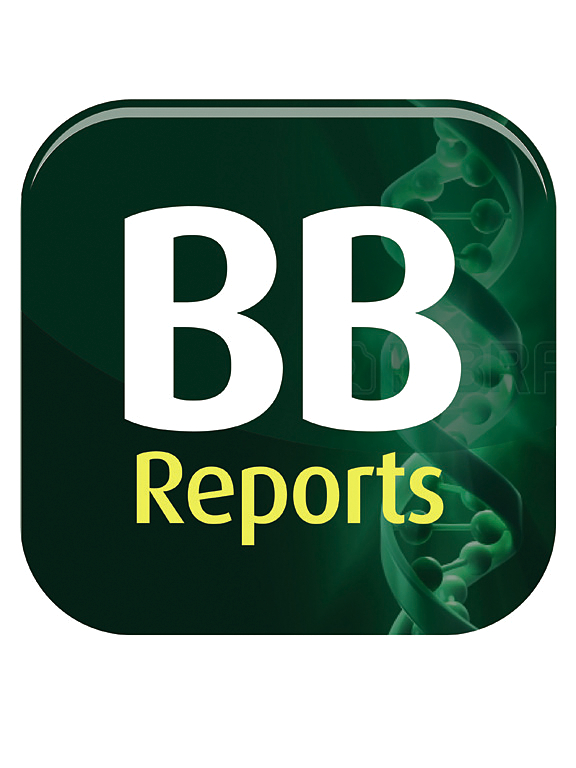采用靶向PCT的高亲和力抗体组合的定量检测方法
IF 2.2
Q3 BIOCHEMISTRY & MOLECULAR BIOLOGY
引用次数: 0
摘要
背景和目的降钙素原(PCT)是一种广泛认可的炎症标志物,用于各种临床测试环境,并受到不断改进,从而对核心抗体提出了更高的要求。然而,已发表的文献缺乏对它们的全面描述。材料和方法在本研究中,我们首先在真核系统中表达全长PCT蛋白,然后采用常规抗体工程技术进行体外细胞融合,并选择特异性PCT蛋白的阳性杂交瘤细胞克隆。结果共获得83个阳性克隆,从中筛选出15个高亲和力IgG1亚型单克隆抗体进行互补决定区(CDR)分析,预测潜在的抗原识别表位。我们提供了这些高亲和力抗体与PCT蛋白之间结合特性的详细表征。利用时间分辨荧光微球(TRFM),以MomAb-8作为捕获抗体,MomAb-20作为标记抗体,建立了一种基于荧光微球的免疫层析条带(FM-ICS)方法。最终,在对临床样品进行初步评估后,证明该FM-ICS具有良好的线性范围、稳定性和临床相关性。结论本研究提出了一种新的方法来提高抗体筛选的效率,跨越多种组合。此外,本文建立的方法在使用FM-ICS检测PCT蛋白方面具有重要的临床应用潜力。本文章由计算机程序翻译,如有差异,请以英文原文为准。
The quantitative detection method employing a combination of high-affinity antibodies targeting PCT
Background and aims
Procalcitonin (PCT) is a widely recognized inflammation marker utilized in various clinical testing contexts and is subject to ongoing refinements, thereby imposing greater demands on core antibodies. However, the published literature lacks a comprehensive description of them.
Material and methods
In this study, we initially expressed the full-length PCT protein in eukaryotic systems, followed by conventional antibody engineering techniques for in vitro cell fusion and the selection of positive hybridoma cell clones specific to the PCT protein.
Results
A total of 83 positive clones were generated, among which 15 high-affinity IgG1 subtype monoclonal antibodies were selected for complementarity-determining region (CDR) analysis to predict potential antigen-recognition epitopes. We provided a detailed characterization of the binding properties between these high-affinity antibodies and the PCT protein. Utilizing time-resolved fluorescent microsphere (TRFM), a novel fluorescent microsphere-based immunochromatographic strip (FM-ICS) approach was developed, with MomAb-8 serving as the capture antibody and MomAb-20 functioning as the labeling antibody. Ultimately, following the preliminary evaluation of clinical samples, it was demonstrated that this FM-ICS exhibited a favorable linear range, stability, and clinical relevance.
Conclusion
This study presents a novel approach to enhancing the efficiency of antibody screening across a diverse array of combinations. Furthermore, the method established herein holds significant potential for clinical application in detecting PCT protein using FM-ICS.
求助全文
通过发布文献求助,成功后即可免费获取论文全文。
去求助
来源期刊

Biochemistry and Biophysics Reports
Biochemistry, Genetics and Molecular Biology-Biophysics
CiteScore
4.60
自引率
0.00%
发文量
191
审稿时长
59 days
期刊介绍:
Open access, online only, peer-reviewed international journal in the Life Sciences, established in 2014 Biochemistry and Biophysics Reports (BB Reports) publishes original research in all aspects of Biochemistry, Biophysics and related areas like Molecular and Cell Biology. BB Reports welcomes solid though more preliminary, descriptive and small scale results if they have the potential to stimulate and/or contribute to future research, leading to new insights or hypothesis. Primary criteria for acceptance is that the work is original, scientifically and technically sound and provides valuable knowledge to life sciences research. We strongly believe all results deserve to be published and documented for the advancement of science. BB Reports specifically appreciates receiving reports on: Negative results, Replication studies, Reanalysis of previous datasets.
 求助内容:
求助内容: 应助结果提醒方式:
应助结果提醒方式:


